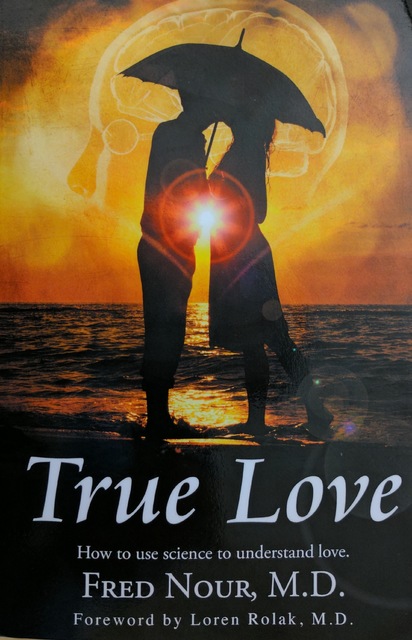Madly in love? Author writes you have brain chemicals to thank for that

The words “true love” often conjure up images of romantic scenes in Hollywood movies, but a California-based neurologist argues long-lasting love is a multilayered process and that falling out of love is a normal part of it.
In his book “True Love,” Dr. Fred Nour explores the history of love and the chemical processes that occur in the brain as individuals fall in and out of love. He postulates that falling out of love is just an expected part of the “true love” process.
“People are conditioned to believe that romance is true love, and that’s not true. It’s just a phase,” he said in a recent interview.
The book, which will be released Tuesday — Valentine’s Day — delves into two sets of chemicals that play a role in romance and true love: monoamines and nonapeptides.
Monoamines like dopamine give people a feeling of euphoria and excitement during the romance stage of the relationship, but evidence suggests those levels drop again after about two years.
Nonapeptides, meanwhile, aid “true love” by increasing feelings of bonding, monogamy and idealization of one’s partner. Laughter and intimacy are two ways to promote release of those chemicals, Nour tells readers.
“The romance, the falling in love phase, is all based on monamines,” Nour said.
But when those romantic feelings go away, many people mistakenly believe the relationship simply isn’t meant to be, and they’re convinced they won’t find “true love” with that partner, Nour argues.
That sentiment is often aided by portrayals of love in Hollywood films, which typically avoid showing what happens when people recognize the spark has left their relationships.
“People see all of the movies with perfect people doing perfect things and they think, ‘I want something like this,’ and in reality it’s not true,” he said.
Jennifer Guthrie, a communication studies professor at UNLV who teaches relational communication, agreed that it’s common for society’s representation of romance to affect people’s perceptions of their partners.
Couples who’ve been together long enough that some sense of passion has faded often wonder if it’s normal to stay in such a relationship, and they can find themselves comparing their relationships to what they see in popular culture.
“We tend to dump all of these expectations on one person, but no one person can meet all of our needs,” she said.
Still, there is evidence that some couples never lose that passion.
Silliness and playing games together can be one of the keys to keeping romance alive, as it allows for surprise and excitement, Guthrie said. That’s why she tells students who ask her about romance to play board games or hide and seek with their partners.
Nour’s text emphasizes that once a couple moves past the romance phase and the falling-out-of-love phase, they can finally achieve “true love.” That love is based on feelings of mutual admiration and respect, and it’s blind to or accepting of the other person’s character flaws.
Maintaining a relationship can be difficult and requires the investment of time and energy, which is why it’s important to carefully select a partner, Guthrie said.
“Relating isn’t easy. It always takes work,” she said. “To me it comes down to what relationships are worth that work.”
Contact Pashtana Usufzy at pusufzy@reviewjournal.com or 702-380-4563. Follow @pashtana_u on Twitter.